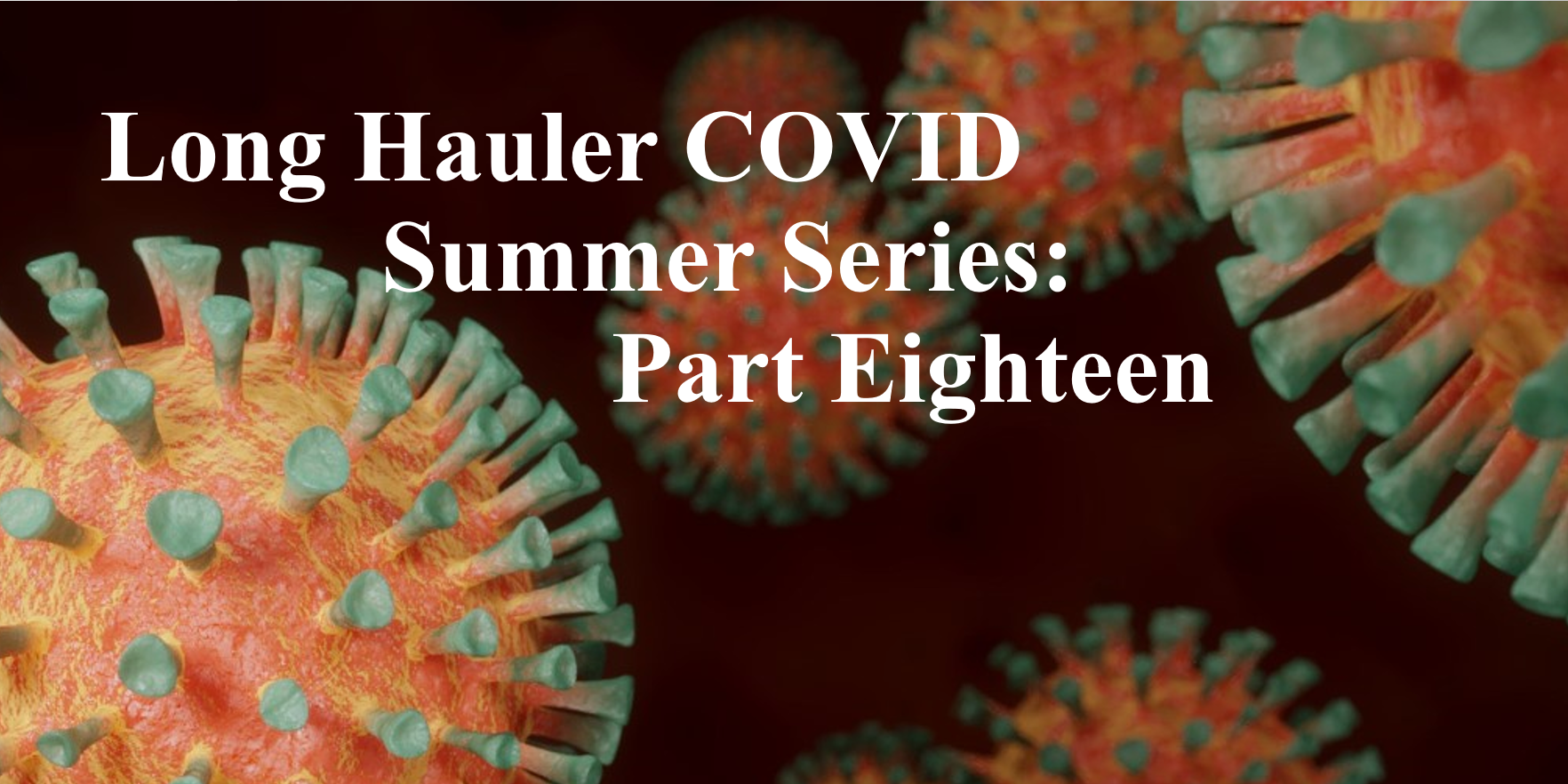In our final summer series edition, we return to the medicine kitchen to discuss POTS and Long COVID. POTS, or postural orthostatic syndrome, took a while to gain acceptance in mainstream medicine; they have only recently begun to understand it as a probable autoimmune condition. This dysfunctional condition of the autonomic nervous system results in dizziness, difficulty standing, palpitations, chest pain, and sometimes actual syncope. With the onslaught of Post COVID in the past year, we are seeing more of this condition in those trying to recover from either the acute disease or even asymptomatic infections.
The autonomic nervous system does not need us to think in order to work, though our thinking can influence it to a degree. We have no need to remind ourselves to breath, no need to think about our beating heart, nor any necessity of considering our blood pressure in any part or our bodies. Sure we can meditate to slow our heart rate and breathing, or exercise our heart to pump faster, but if we do nothing, our breathing and heartbeat continue. The same goes for our GI tract and a few other autonomic functions.
Normally, when we stand up, gravity pulls blood to our lower bodies, slightly dropping blood pressure to our heads. At times, anyone may feel a little woozy upon standing too quickly. This shift is quickly addressed by our autonomic system by tightening our legs’ blood vessels and speeding up the pulse a little. Any momentary drop in our head’s blood pressure is quickly compensated and we usually don’t sense any change.
In POTS, the autonomic nervous system dysfunctions in some way moving too fast or too slow or it may undercompensate or overcompensate. Regardless, what would have normally been a seamless an imperceptible shift becomes a symptomatic mess. When severe, these resulting palpitations, dizziness, and even syncope can become quite disruptive and alarming. This dysfunction in the autonomic nervous system is generally labeled dysautonomia. POTS is one form of dysautonomia relating to dysfunction of the system controlling blood pressure and pulse during changes in posture.
Scientists have been studying these POTS dysautonomia patients for years, at first blaming psychological factors for the symptoms, then admitting that they did not have an explanation for obvious physical changes they witnessed in these patients. Even before COVID 19, they recognized that these POTS patients often reported a viral illness not too long before the onset of symptoms. With the onset of Post COVID syndrome in sudden numbers, the occurrence of POTS increased given researchers an opportunity to study the syndrome in real-time.
The researchers had already begun to link this autonomic nerve dysfunction with a few different antibodies. These antibodies produced by the immune system’s B cells normally attack foreign invaders, but in autoimmune conditions, they are liable to attack any body tissue. Evidence began to suggest that some yet unidentified antibody was attacking nerve cells and possibly causing the POTS we were seeing.
With the POTS occurring in POST COVID, a similar autoimmune syndrome is suspected. Besides the fatigue, respiratory complaints, and other symptoms, these Post COVID, or Long Hauler COVID, patients complain of fatigue with standing, palpitations, chest pain, dizziness, feeling like they want to pass out, and other symptoms that cross over with prior POTS patients. The post COVID patients have a higher rate of autoimmune antibodies in general even though specific antibodies against the autonomic nervous system components are not identified with any consistency.
In the article referenced, British clinicians reported clear documentation of POTS changes in the Post COVID patients just like other POTS patients. They discussed the prevalence of POTS type symptoms being reported in large samples across the world. They considered the application of various POTS therapies to the current Post COVID situation.
I would agree with their hypothesis that COVID 19 is triggering autoimmune based autonomic dysfunction in these Post-COVID patients. I would also agree that we need more research to understand exactly what is happening in these patients so we can better treat them. My disagreement lies in how we handle these patients as well as the fact that in functional medicine we already have some insights into how we can help these patients.
For years, we have been helping POTS patients overcome not only their symptoms, but their root causes. While conventional medicines like fludrocortisone for blood volume and midodrine for tightening blood vessels are helpful in the short run, we incorporate other natural remedies to support the patient while we target the root causes. These root causes can be viral infections or various toxins like mold or Lyme toxins. By treating the root cause we move the patient towards deeper restoration rather than just settling for symptom management.
From there, we turn to cellular repair and system balance. After toxins and infections are dealt with, we can turn our attention to optimizing the recovery of normal function with anti-oxidants and other nerve regeneration support. With that multi-step approach, we help patients live healthier more abundant lives without needing ongoing conventional medicine therapies forever. As we treat long COVID we are very hopeful in that we are beginning to see this new cohort of POTS patients recover.
Article in Focus:
Dani, Melanie et al. “Autonomic dysfunction in ‘long COVID’: rationale, physiology and management strategies.” Clinical medicine (London, England) vol. 21,1 (2021): e63-e67. doi:10.7861/clinmed.2020-0896
Sanctuary Functional Medicine, under the direction of Dr Eric Potter, IFMCP MD, provides functional medicine services to Nashville, Middle Tennessee and beyond. We frequently treat patients from Kentucky, Alabama, Mississippi, Georgia, Ohio, Indiana, and more... offering the hope of healthier more abundant lives to those with chronic illness.







